Don’t miss key changes in performance. Datu AI Analyst helps surface likely causes behind metrics changes and analyse your data in minutes, all in natural language, with no technical expertise. AI Analyst masters many tasks, so you can focus on the business.

AI Analyst key functionality
AI Data Engineering
Connects to your company and prepares the data for your decision making by detecting data quality issues and modelling the data
AI Data Analytics
Analyzes data, uncovers patterns, providing understanding of what and why it happened
AI Data Science
Utilizes advanced analytics techniques to determine what will happen and what actions to take
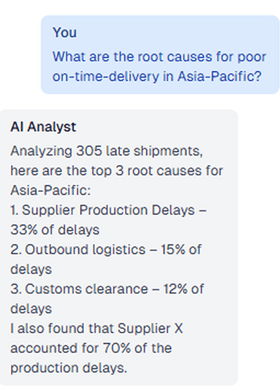
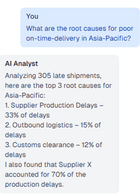
Performs deep research and analytics
Analyzes key KPIs, uncovers root causes, and visualizes processes to help you identify the drivers that have the greatest impact on performance like a data scientist. Supports analytics across the whole enterprise data.
.png?u=https%3A%2F%2Fimages.ctfassets.net%2Ftlkmttsrqlkl%2F1fwyQItb3JpU67Aj92pAbN%2Faaa77e46c7ad6bea8929fa223cb673a3%2Fimage_2__3_.png&a=w%3D280%26h%3D391%26fm%3Dpng%26q%3D100&cd=2025-08-11T20%3A06%3A57.707Z)
.png?u=https%3A%2F%2Fimages.ctfassets.net%2Ftlkmttsrqlkl%2F1fwyQItb3JpU67Aj92pAbN%2Faaa77e46c7ad6bea8929fa223cb673a3%2Fimage_2__3_.png&a=w%3D140%26h%3D196%26fm%3Dpng%26q%3D100&cd=2025-08-11T20%3A06%3A57.707Z)
Provides knowledge base of KPIs
KPI database with pre-built analyses and best practices across multiple domains helps you get started quickly with your analytics. You can easily save additional KPIs and share them across your organization.
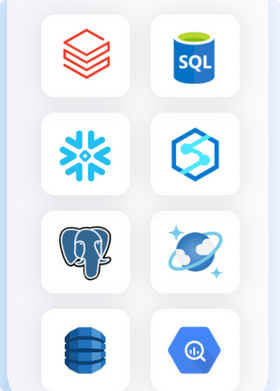
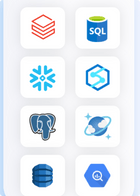
Connects to your business data
Integrates directly to your database in a matter of hours with self-service setup. Available connectors for the major databases (Databricks, Snowlake, SQL server). Possibility to integrate with Slack and Teams, enabling easily access within organisation.
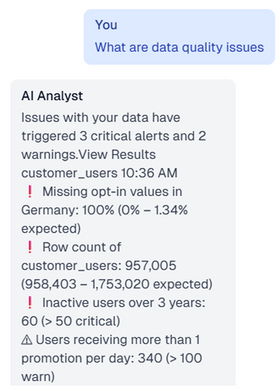
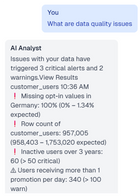
Resolves data quality issues
Automatically detects data quality issues, flags anomalies, and resolves them to ensure clean, reliable data for decision making.
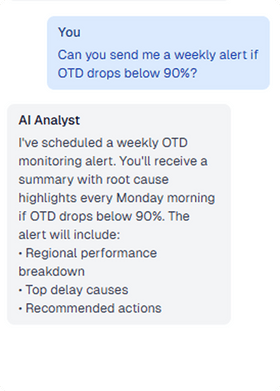
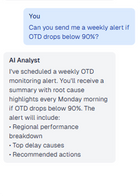
Automates actions and triggers
Monitors data and triggers activities in real time based on your data whatever it is about data quality, improvement monitoring or requesting new data from engineering department.
Case studies on what you can mine with AI Analyst
Supply chain
Identify key contributors to on-time-delivery (OTD) performance, root causes for delays such as low inventory levels or bottlenecks
Measure lead times between different process steps and variation
Monitor delivery performance by regions, products and carriers
Sales
Measure sales and profits
Understand impact of your actions such as campaigns on sales
Identify key drivers behind revenue increase or drops
Who is likely to churn and key factors contributing (low usage, high complaints).
Procurement
Analyze supplier lead times and identify potential risks to productiom
Receive recommendations for updating agreed lead times to meet demand
Understand the breakdown of procurement costs and uncover savings opportunities, such as order consolidation
Perform three-way match analyses to detect discrepancies in quantities
Identify discrepancies planned and actual material consumption
Inventory
Monitor inventory levels across locations
Identify overstocked or understocked materials
Identify slow-moving or obsolete inventory
Understand key inventory KPIs, such as turnover
Get suggestions for replenishment cycles and optimal inventory levels
Contact us

